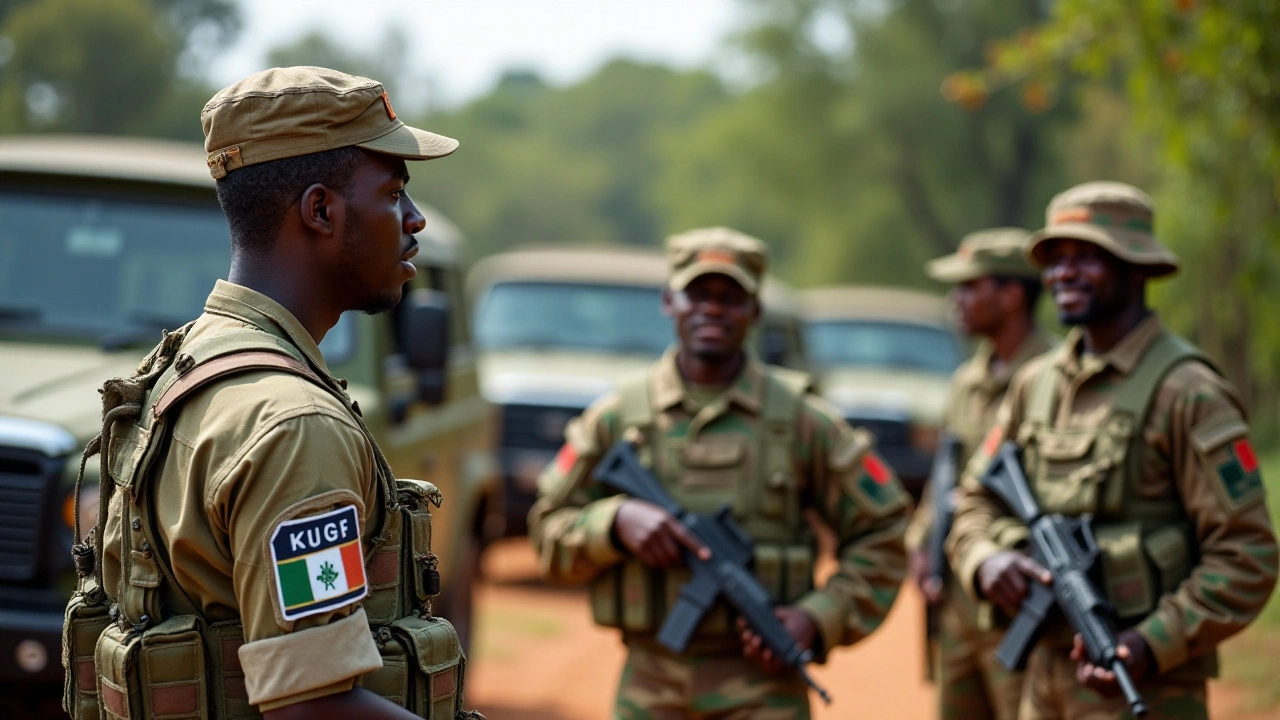
Halilu Sububu: A Notorious Figure in Nigeria's Criminal World
Halilu Sububu, also known by the alias Halilu Buzu, was a name that struck fear into the hearts of many in Nigeria's northwestern and central regions. Known for his audacious and brutal raids, Sububu led a notorious bandit gang that operated from the dense Sunke forest in the mineral-rich Anka district of Zamfara State. His violent exploits extended across several states including Sokoto, Kaduna, Katsina, and Niger. His campaign of terror involved not just looting and pillaging but also engaging in illegal mining and arms trafficking, which further fueled the instability in these areas.
The Downfall of a Criminal Kingpin
In a significant turn of events, Sububu's reign came to an abrupt end during a meticulously planned military operation. On Thursday, Nigerian troops, leveraging intelligence on Sububu’s movements, laid an ambush for his convoy in Mayanchi, a village in the Zurmi district. The resulting confrontation was fierce, a testament to the dangerousness of the bandit's entourage, which reportedly included around 60 heavily armed fighters. By the early hours of Friday, Sububu and over 38 of his men had been neutralized. This operation, executed by Nigerian Air Force Special Forces, marked a major victory in the nation's ongoing battle against organized crime.
Strategic Military Engagement and Success
Group Captain Kabiru Ali, the spokesperson for the Nigerian Air Force, confirmed the success of the joint operation. The clash led to the recovery of a significant amount of weaponry, including rocket-propelled grenades, machine guns, and a substantial cache of ammunition. This arsenal, intended to perpetuate Sububu’s campaign of violence, was now in the hands of the military, potentially staving off future attacks. The operation not only achieved its primary objective of neutralizing Sububu but also dealt a critical blow to the operational capabilities of the broader network of bandits terrorizing the region.
Sububu's Infamous Legacy
Halilu Sububu's infamy was not without warrant. At the age of 38, he had built a fearsome reputation, orchestrating numerous attacks that resulted in the loss of countless lives and the displacement of entire communities. His influence was so pervasive that the Nigerian military had placed a bounty of five million naira (approximately $3,050) on his head in November 2022. Despite a narrow escape from an airstrike in October 2022, Sububu's luck finally ran out. His death is seen as a significant setback for the criminal gangs to which he supplied weapons, often sourced from Libya via Niger, highlighting the complex and international dimensions of these criminal activities.
The Broader Implications of Sububu’s Death
The killing of Halilu Sububu is more than just a tactical military victory; it carries broader implications for the security situation in Nigeria. The Nigerian Defence Minister and other key security officials have lauded this operation as a major step forward in the nation’s fight against banditry and organized crime. Sububu's activities had long been a source of instability, undermining local economies, disrupting communities, and causing widespread fear. Removing such a prominent figure from the equation offers a glimmer of hope for the restoration of peace and order in the affected regions.
Community Impact and Reaction
The communities that have suffered from Sububu's brutal raids are now hopeful for a respite from the relentless violence. The ambush that ended Sububu’s life might very well signal the beginning of the end for the reign of terror that has plagued these areas for years. Local leaders and residents alike have expressed cautious optimism, welcoming the news as a significant win for the military and the nation. However, there remains a sober awareness that the dismantling of Sububu’s network requires continuing vigilance and robust security measures to prevent the rise of another figurehead who might seek to fill the power vacuum.
Continuing the Fight Against Banditry
While the death of Halilu Sububu represents considerable progress, it is clear that the fight against banditry in Nigeria is far from over. The Nigerian government and military face the ongoing challenge of tackling the root causes of these criminal activities, which often include poverty, lack of education, and inadequate law enforcement in remote areas. Additionally, the illegal arms trade that has supported bandit operations suggests the need for stronger international cooperation to disrupt supply chains and bring about long-term solutions. Sububu’s elimination is a critical step but sustained efforts are essential to ensure lasting peace and security.
Conclusion: A Path Forward
In wrapping up, the successful ambush and killing of Halilu Sububu by the Nigerian military is a monumental achievement in the country’s extensive and ongoing fight against banditry. It highlights the importance of strategic intelligence and coordinated military efforts in tackling organized crime. While this victory gives cause for celebration, it also underscores the need for continuous and comprehensive measures to address the multifaceted challenges that contribute to such criminal endeavors. The hope is that this operation will not only weaken banditry networks but also pave the way for longer-term stability and prosperity in Nigeria.





